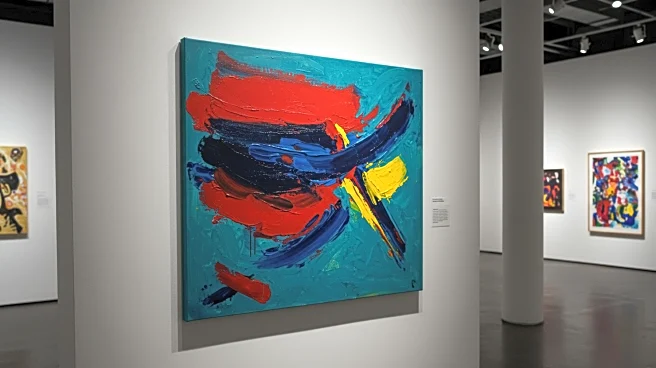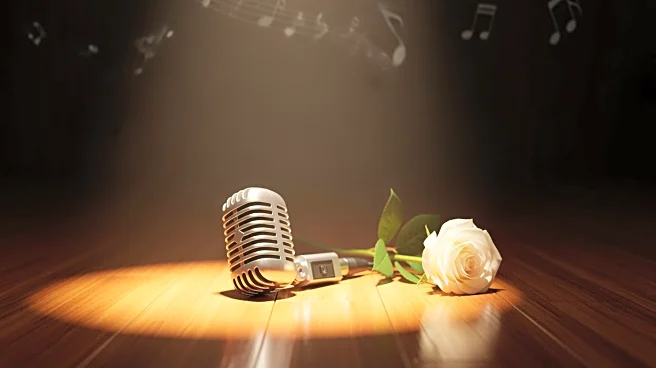What is the story about?
What's Happening?
A Bangkok art exhibition curated by Burmese artist Sai and his wife has been censored after complaints from the Chinese government. The exhibition, titled 'Constellation of Complicity: Visualising the Global Machine of Authoritarian Solidarity,' featured works by exiled artists from countries such as China, Russia, and Iran. Chinese embassy representatives, accompanied by Bangkok city officials, visited the exhibition shortly after its opening, demanding the removal of artworks by Tibetan, Uyghur, and Hong Kong artists. The arts center negotiated a compromise, allowing the exhibition to continue with sensitive elements removed. Sai and his wife have fled to the UK, fearing deportation to Myanmar, where Sai believes he would face persecution for his activism.
Why It's Important?
The censorship of the Bangkok art exhibition highlights the influence of the Chinese government on cultural events outside its borders, raising concerns about transnational repression. This incident underscores the challenges faced by artists and activists in expressing dissent against authoritarian regimes. The situation also reflects the diplomatic tensions between Thailand and China, as the Thai authorities responded to pressure from the Chinese embassy. The broader implications include potential impacts on freedom of expression and cultural sovereignty in countries hosting such exhibitions.
What's Next?
Sai and his wife plan to seek asylum in the UK, continuing their activism against authoritarian regimes. The exhibition's censorship may lead to increased scrutiny of Thailand's relationship with China and its handling of cultural events. Human rights advocates may push for greater protection of artistic freedom and expression in Thailand and other countries facing similar pressures. The incident could also prompt discussions on the role of art in political discourse and the responsibilities of host countries in safeguarding cultural sovereignty.
Beyond the Headlines
The censorship of the exhibition raises ethical questions about the role of art in challenging authoritarianism and the responsibilities of cultural institutions in protecting freedom of expression. The incident may contribute to a long-term shift in how countries navigate diplomatic relations with powerful nations like China, balancing economic interests with cultural and political values. It also highlights the vulnerability of artists and activists in exile, who continue to face threats from their home countries even while abroad.
















